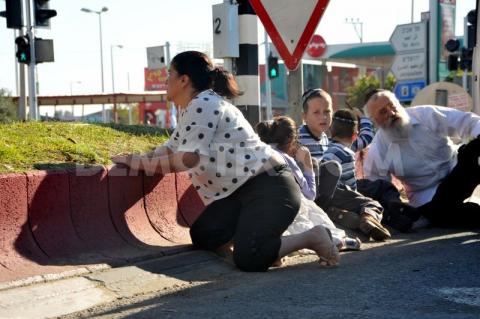Israel's years of calm are over
Up until June 2014, we managed to prevent the chaos from spreading over our borders. But now, Hamas’ rockets are bringing that disorder into our orderly bubble. The combination of fanaticism, desperation and rocket capabilities are only the precursor to what we can expect over the next years and decades. Yesterday’s complacency is on its way out, making way for awareness of unending regional violence and disorder.
The rocket attacks on Israel are meant to burst this bubble. Tel Aviv thought it found a way to avoid the horrors of the Middle East? Tel Aviv was mistaken. That spiritual, cultural, value-centric bubble it created could not survive, not without recognizing the tragic reality surrounding it. You thought you could keep your economy and society cut off from geostrategic challenges? You were wrong. In this country there’s no separating the essential struggles for a just society and healthy economy from the unique circumstance in which Israel exists.
Prime Minister Benjamin Netanyahu thought he could maintain stability in the absence of a peace process and without an alliance with the moderate Palestinians? Netanyahu was wrong. As it was written here time and time again in recent months, the Israeli-Palestinian conflict does not exist in a vacuum. When there is no movement toward peace, violent escalation ensues. Netanyahu’s decision not to move toward partitioning the land has brought him to the beginning of a political implosion, which will prevent him from dealing with the objective of his lifetime — Iran.
The first two days of rocket attacks didn’t cause much damage to Israel. For the most part, the Iron Dome worked very well. For the most part, Israelis have stood up to the challenges. But there’s no telling what the future holds, or what the next rocket will bring with it. The dilemma is a difficult one: On the one hand, no state can withstand a violation of its sovereignty. On the other hand, being drawn into the Gaza Strip is akin to being drawn into a perilous trap.
What will be will be as the situation unfolds, but it’s already clear that the way things were until a few weeks ago is gone. The bubbles we’ve lived in have burst. The years of calm are over. We’ve now come face to face with the new, wild and violent Middle East.
Ari Shavit

